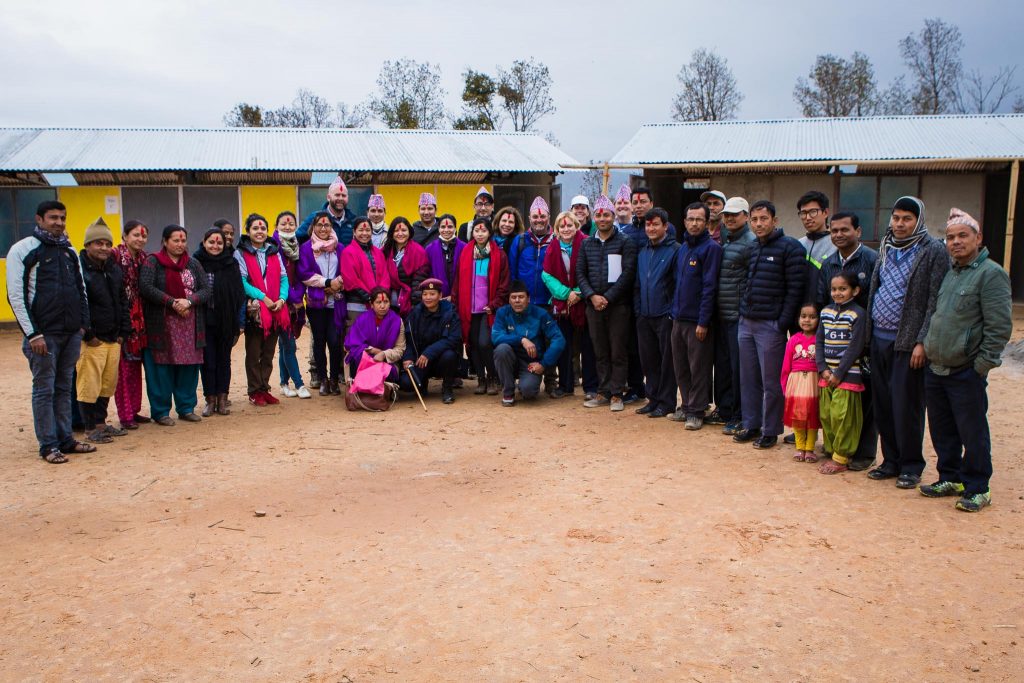
Our group of volunteers and doctors
From March 4 to March 18, 2017, five volunteers – Pamela Dobson, Roberta Smith, Chris York, Riza Ayson & Jeff Lovin – embarked on the adventure of a lifetime to accompany PFAV founders Kathy and Rene Perez-Silva on their annual trip to Nepal. For four of them, this was their very first trip to Nepal, and it was a two-week odyssey like nothing they had ever experienced.
After departing from Los Angeles and changing planes in Hong Kong, the group arrived in Nepal late on Sunday, March 5, toting fourteen bags of supplies to bring to their two-day health camp in the Sindhupalchowk district. Each bag weighed in at 50 pounds and was brimming with vitamins and oral hygiene supplies for the health camp. With the local time almost 13 hours ahead of what it had been in Los Angeles, the travelers headed to bed to rest up for a very busy two weeks ahead.
On Monday, Rene and Shree Poudel, PFAV’s in-country director, went to pick up more medicine for the health camp while the others spent their first full day in Nepal exploring the vibrant capital city of Kathmandu. For Chris, Roberta, Riza and Jeff, this was their first real taste of Nepali life.
“I had seen photos, watched documentaries, and even researched the issues that surround such a country as Nepal, but nothing, and I mean nothing, had prepared me for this firsthand experience,” said Roberta. “In the streets of Kathmandu, my senses were completely overwhelmed. Even my sixth sense was broadsided in that I felt an odd sensation that this was a very sacred place, to be experienced, enjoyed, and, above all, respected.”
Her husband Chris also marveled at the city around him: “Nepal’s poor economy is evident everywhere, from the air quality to the trash strewn in many places, yet it is juxtaposed against brightly dressed people and colorful surroundings. As soon as I was able to slow down, relax, and let the city absorb me, I was able to appreciate Kathmandu for what it really is. In the following weeks I would fall in love with an amazing country.”
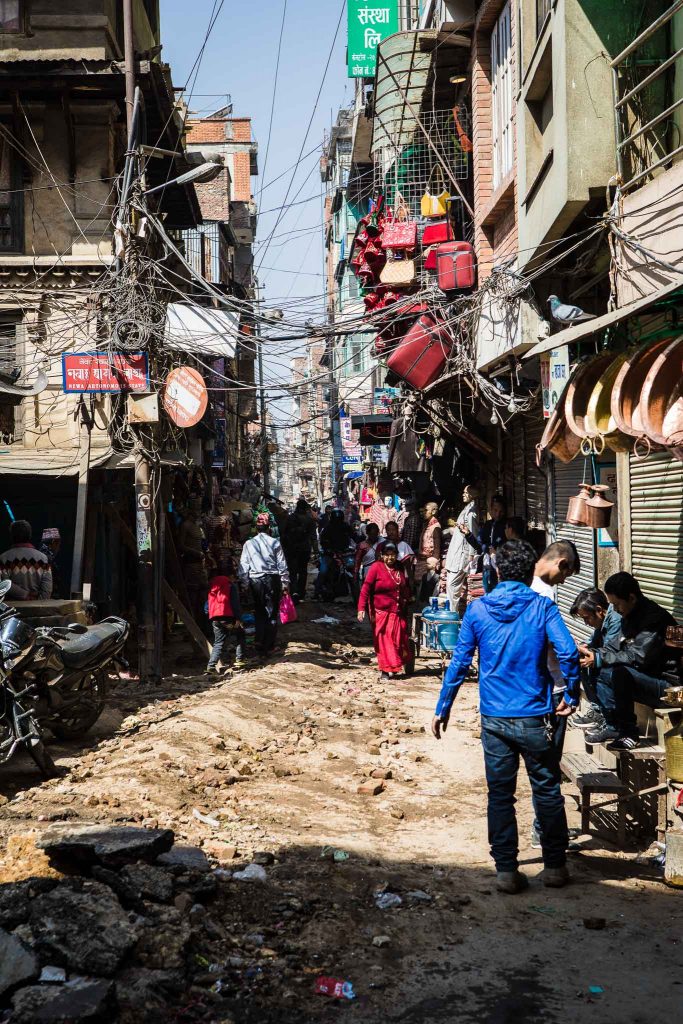
Thamel, in Kathmandu
One of the first adjustments the American volunteers had to make was getting used to the traffic. Chris found the driving in Nepal to be “exciting, if not terrifying” and vowed he would “put these drivers up against any in the world as they maneuver buses past trucks on streets that are only wide enough for one vehicle, and motorcyclists carry everything from groceries to goats on motorbikes that have about as much horsepower as a sewing machine. The people of California could learn a thing or two from Nepali drivers.”
The group got the chance to experience the Nepali roads firsthand on Tuesday, when they embarked on a three-hour road trip to Dhading Besi, a small river town in western Nepal. It is home to the Single Women’s Micro-enterprise, a collaborative project that has been sponsored by Project for a Village and Medical Mercy Canada. Here, single mothers find meaningful employment making reusable menstrual kits – certified by Days for Girls International – for Nepali girls, many of whom otherwise lack the resources to hygienically handle their periods without missing school.
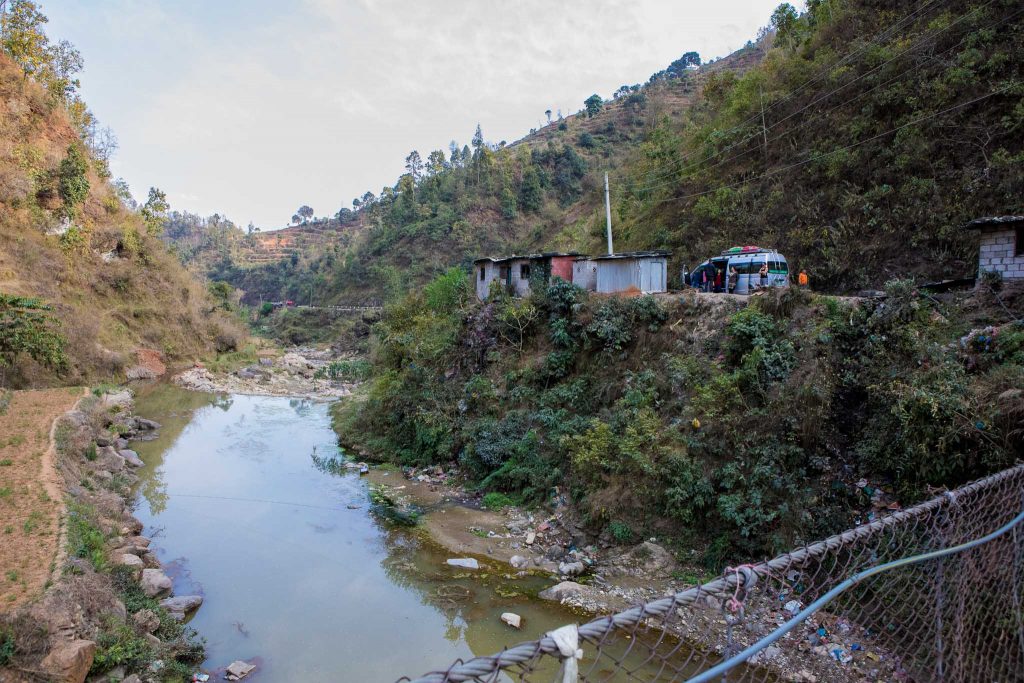
On the way to Chautara
Roberta shared how much she enjoyed meeting the women at the Micro-enterprise, all of whom have led lives riddled with loss, poverty, and a serious lack of opportunity: “Their sense of purpose and import to the overall project was evident in their graciousness and welcoming smiles. I wouldn’t realize until much later in our trip exactly how fortunate these women actually are to even have a sense of purpose and import in their lives.”
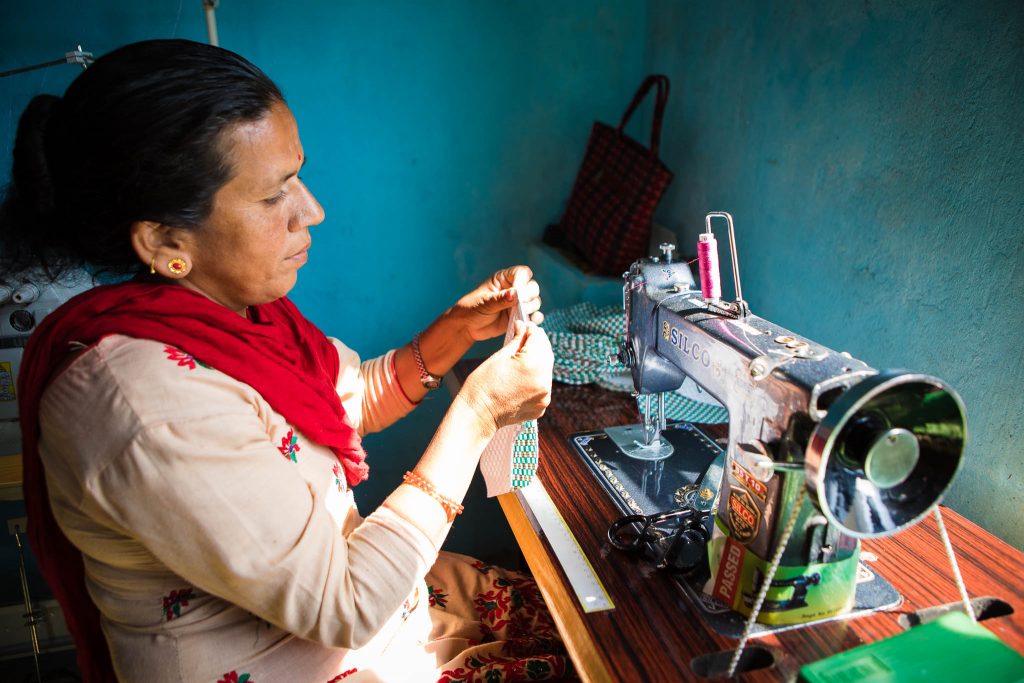
Making the menstrual hygiene kits
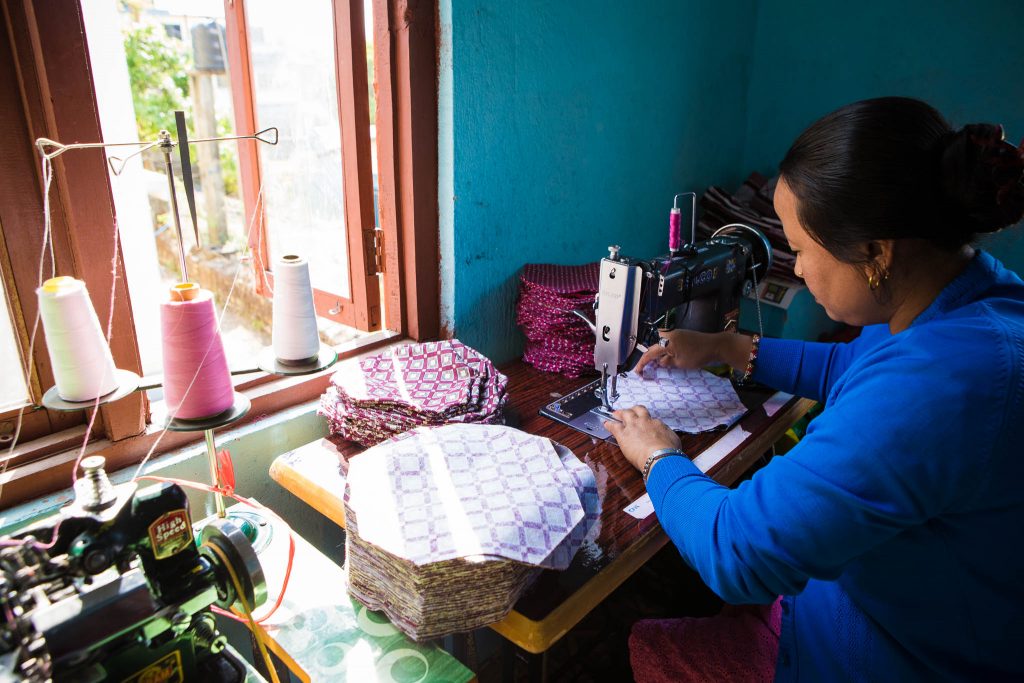
Making the Days for Girls menstrual hygiene kits in Dhading Besi
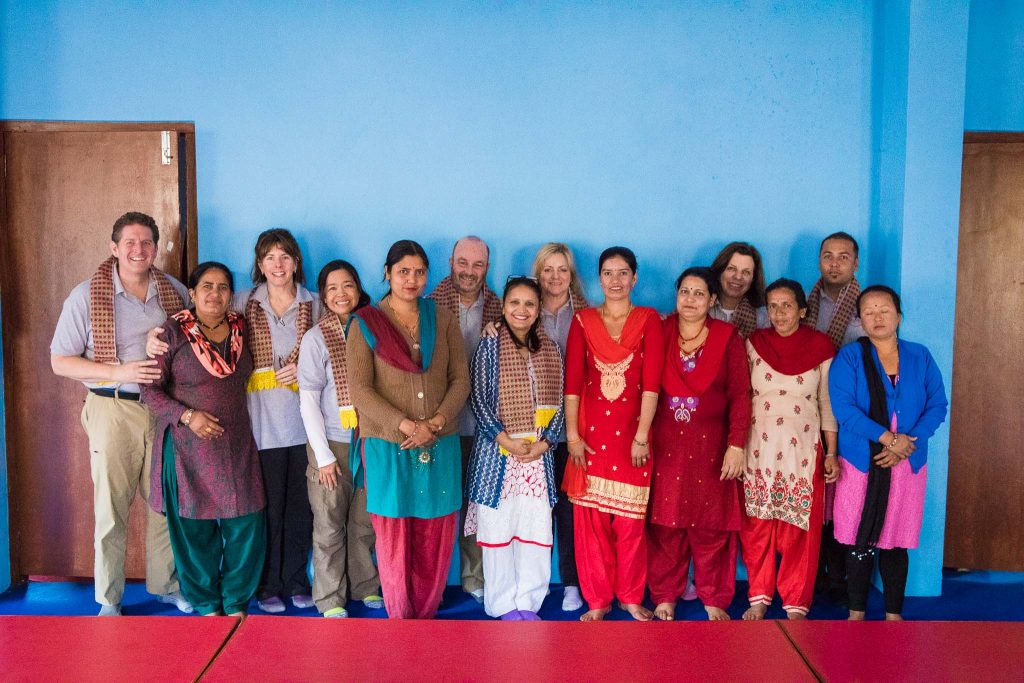
The Micro-enterprise group
The group spent the following day touring more of Kathmandu while Rene, Kathy and Pam traveled to the village of Godwari to visit their friend Father Pius, a Catholic priest who helps run a hostel for women and children living with HIV/AIDS. They also picked up the remainder of the supplies for the health camp that weekend.
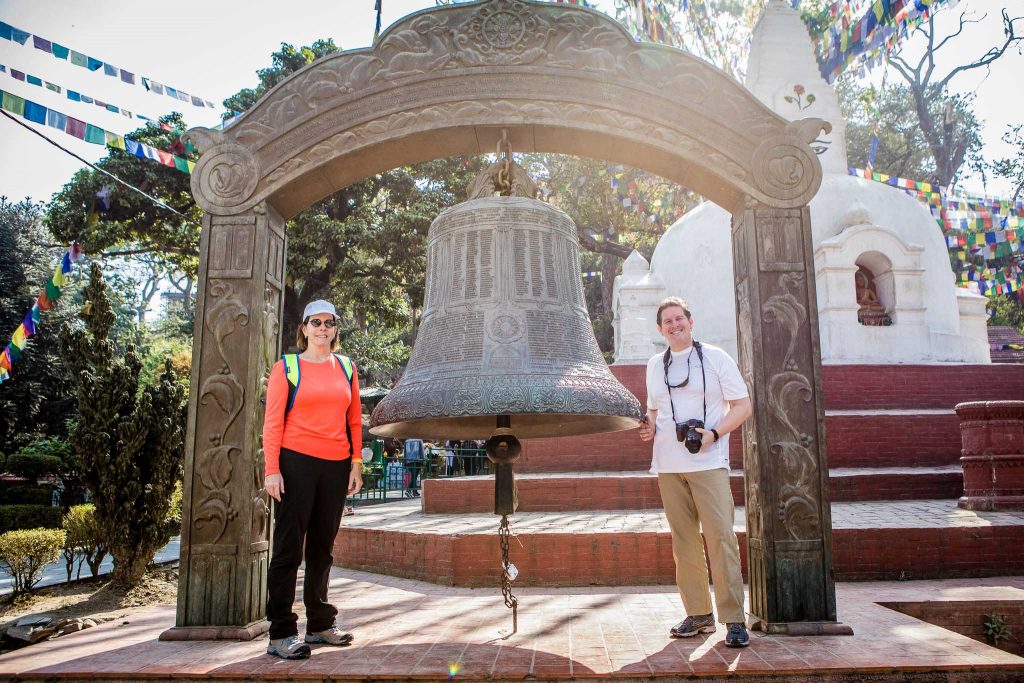
Roberta & Chris in Kathmandu
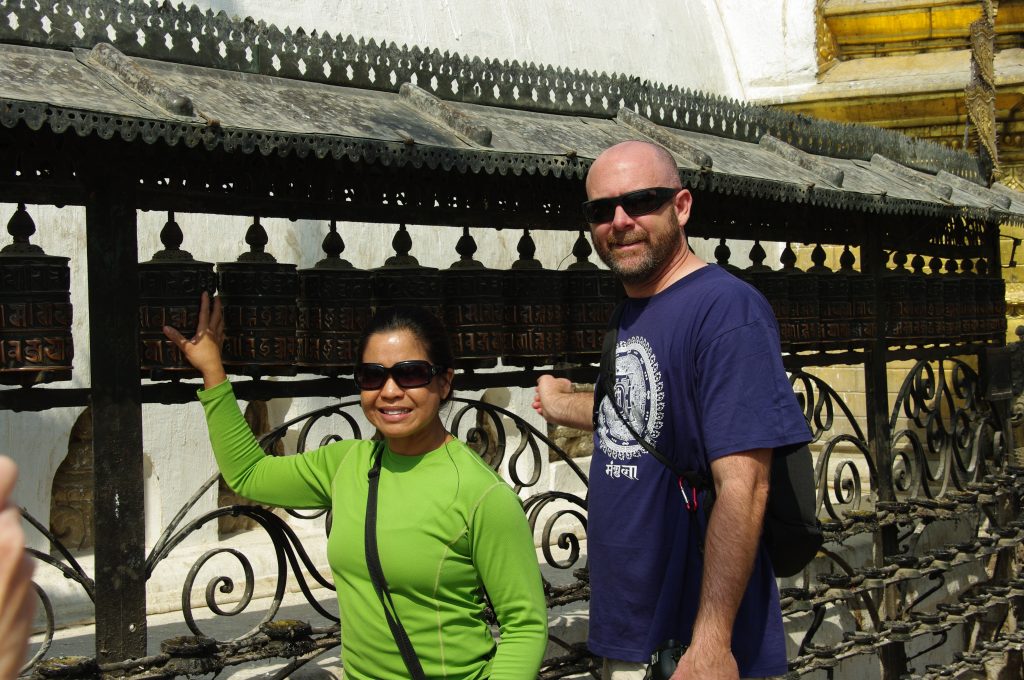
Jeff & Riza in Boudhanath
After a long delay due to traffic-inducing protests preceding an upcoming election, the group arrived in Chautara, Sindhupalchowk on Thursday evening. They were headquartered in the village of Pipil Danda, which, at an elevation of “merely 4000 feet,” is “considered downhill by Himalayan standards,” according to Rene. After unloading the supplies, they joined local officials and the Nepali volunteer doctors for a relaxing dinner before two days of hard work at the health camp.
The next day, Friday, arrived with an onslaught of cold rain and wind. Nevertheless, hundreds of people from all over the surrounding area made their way to the camp: children, parents, and the elderly alike. In spite of the weather, photographer Jeff Lovin found himself encountering villagers who had walked for hours in the cold and rain to then stand in a long line of other patients. “Yet everyone standing in line was friendly and waited patiently,” he noticed. “In fact, everyone was so happy and friendly throughout the whole process through each station.”
Chris, who was in charge of registration, felt it was a “fantastic experience being the gatekeeper with the aim to see as many patients as possible in order to provide free medical, dental and pediatric attention, treatment and advice.” He also commended the involvement of the local Nepali doctors, dentists, and pharmacists who had volunteered to meet the Chautara community’s needs.
Roberta assisted with cervical cancer screenings, a desperately needed service in a nation where the leading cause of death for women is cervical cancer. “I could not help but contrast the experience for these women with those having the same exam here in the United States,” she remembered. “There were no warm exam rooms outfitted with OB tables and comfortable stirrups. No clean, disposable paper gowns or single-use speculums with lights. We had to make things work with what we had. And work they did!”
But along with admiring the way “the Nepali people are able to do so much with so very little,” Roberta added that she “felt very close to these women during this adventure of making things work with what we had and I pray that I made a difference.”
Perhaps Rene sums it up best: “Resilient must be a synonym for Nepali.” Because the next day, when the weather was even worse and the volunteers nervously wondered if they would have to cancel, the Nepali team insisted that people would still come. They certainly did – in even greater numbers than the day before.
“They came in droves from up and down the mountain,” Rene described. “They came with umbrellas and children on their backs. Old and young. Over 500 of them.” All wearing considerably fewer layers than the American volunteers, and many without shoes – including one elderly woman who said she’s never owned a pair of shoes because she doesn’t like how they feel.
So many people came, in fact, that in order to make it back to Kathmandu that night, the camp workers had to stop the line at 3pm.
“The feeling I got from everyone was that they were so grateful and thankful that we were there,” Jeff recalled. “Into the second day of the health camp, I started seeing some familiar faces that I had seen the day before and I noticed that this was much more than a Health Camp, it was becoming a community event which brought people together. It was truly special to see all this first hand and thru the lens. It is something I will never forget and something that I want to do again and again.”
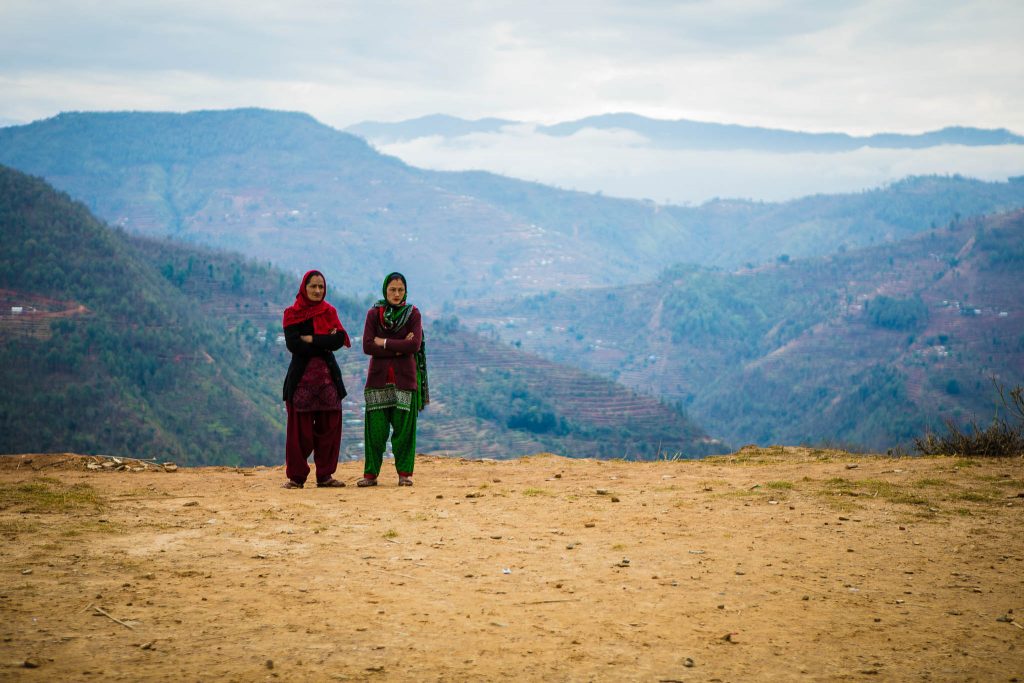
Waiting…
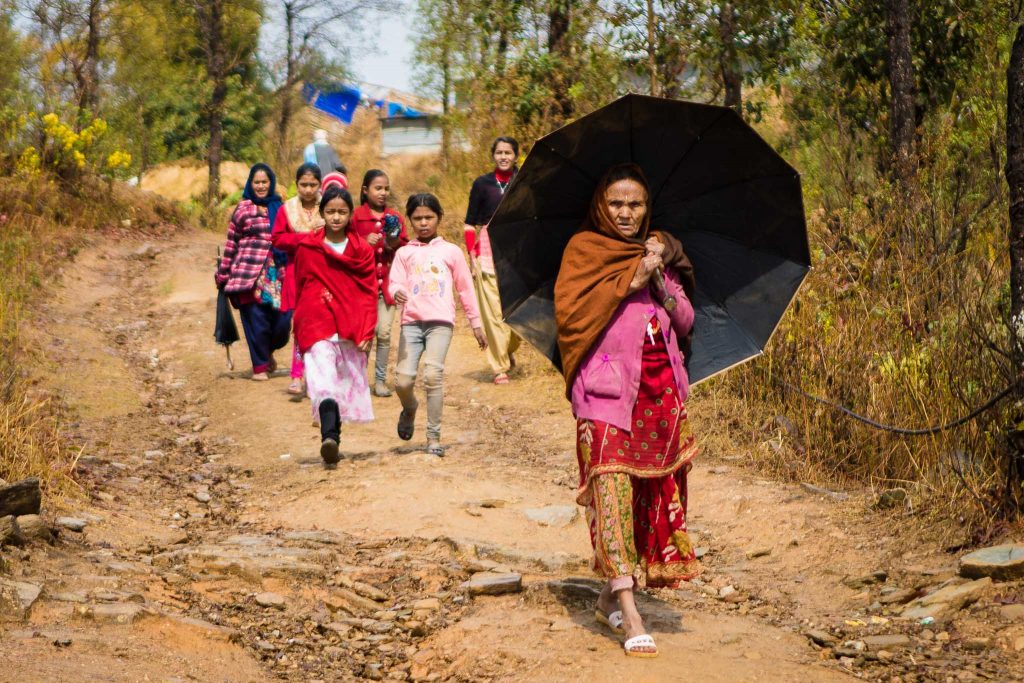
Walking down the mountain to come to the camp
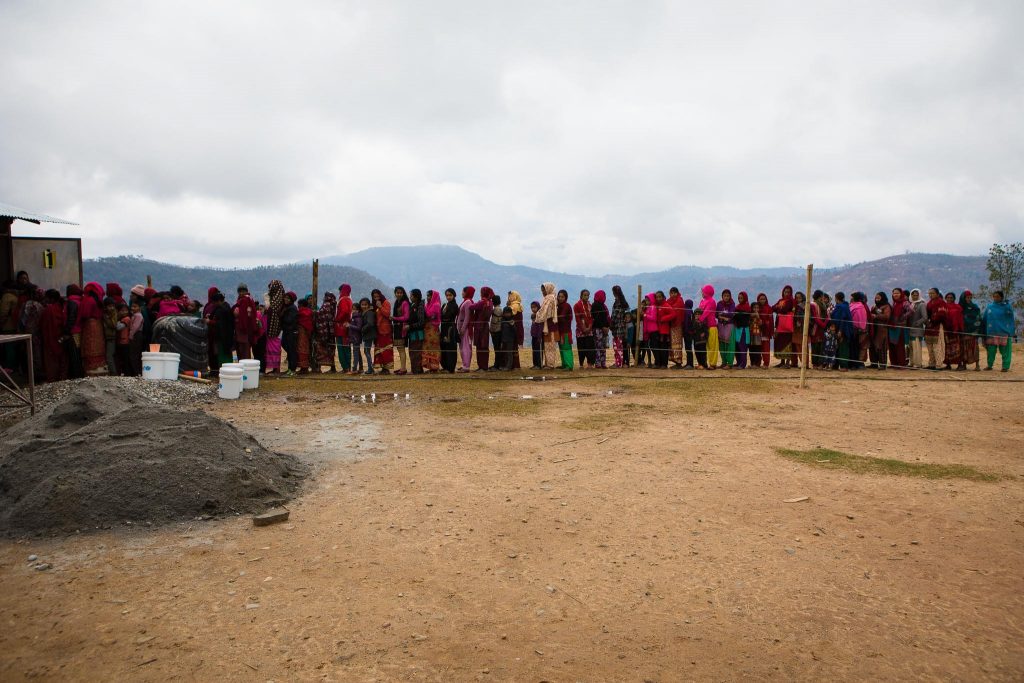
The line of patients well into the afternoon
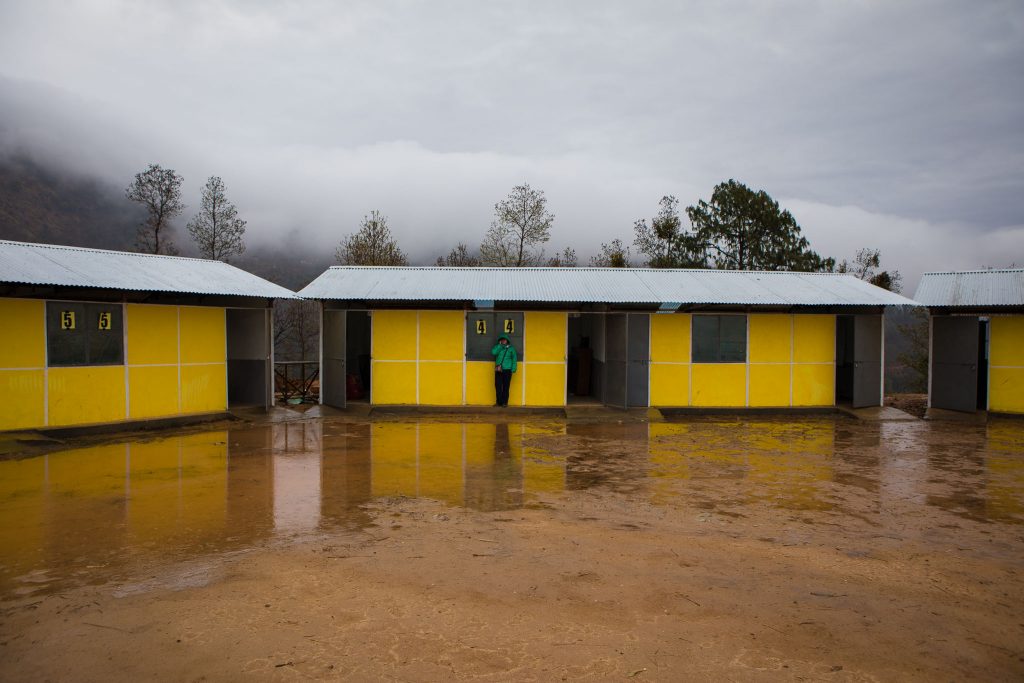
The morning of day 2
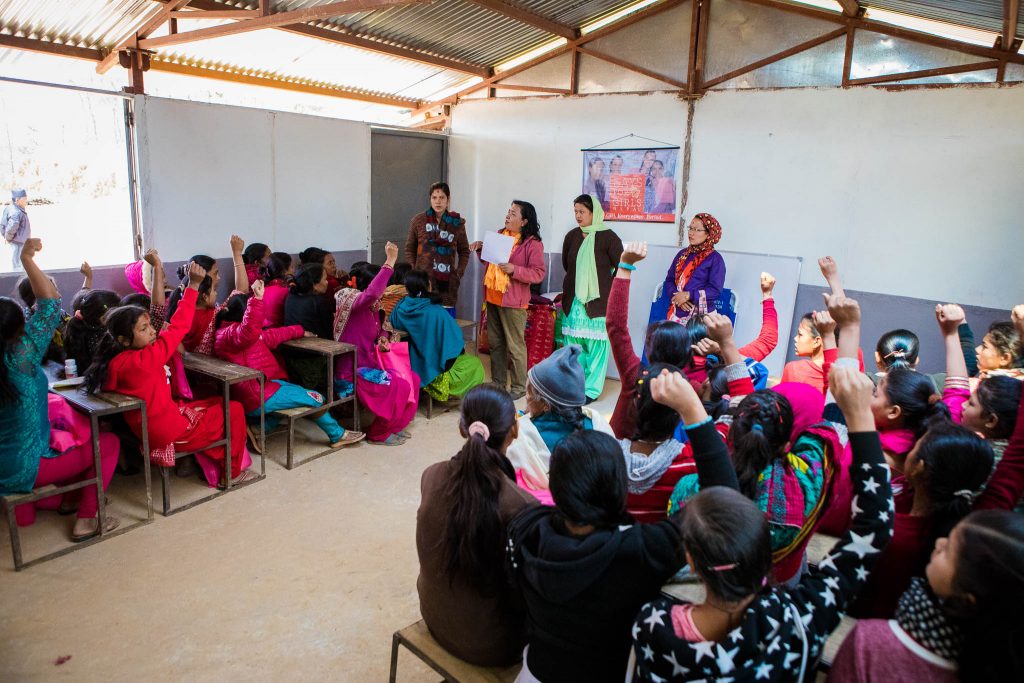
Health & hygiene class
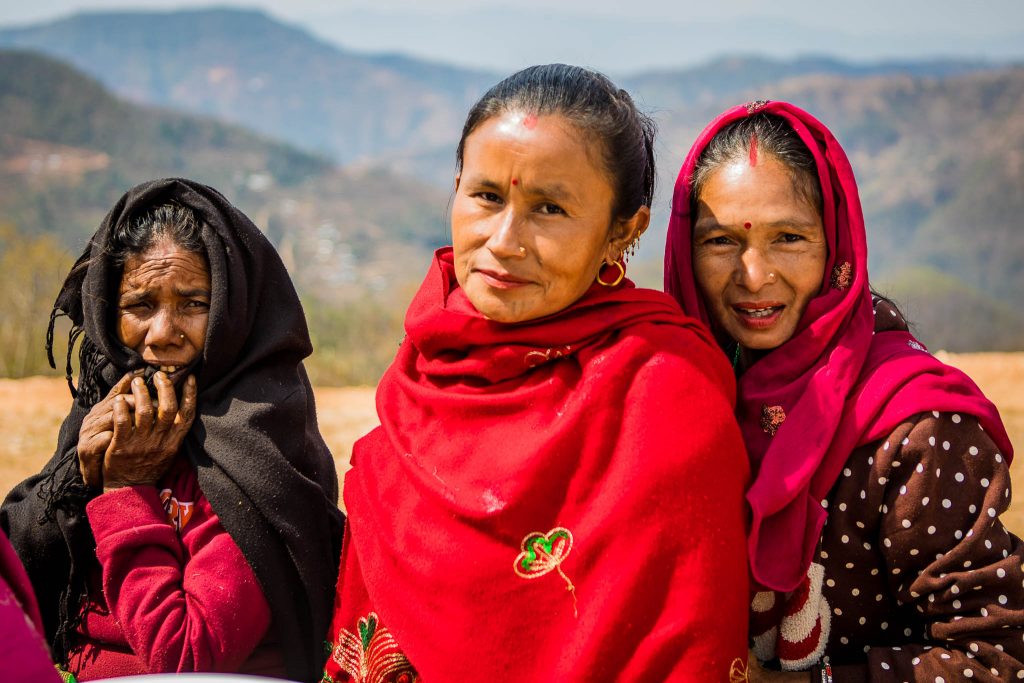
Waiting patiently
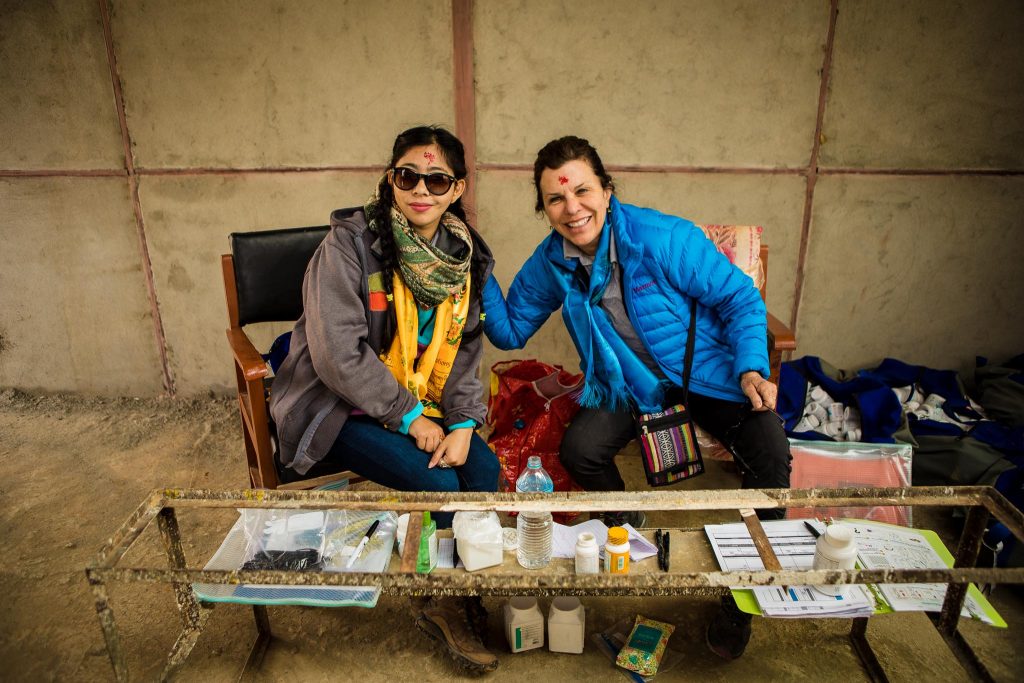
Pam Dobson, AKA “PFAV de-wormer and vitamin girl,” and Dela Joshi at work
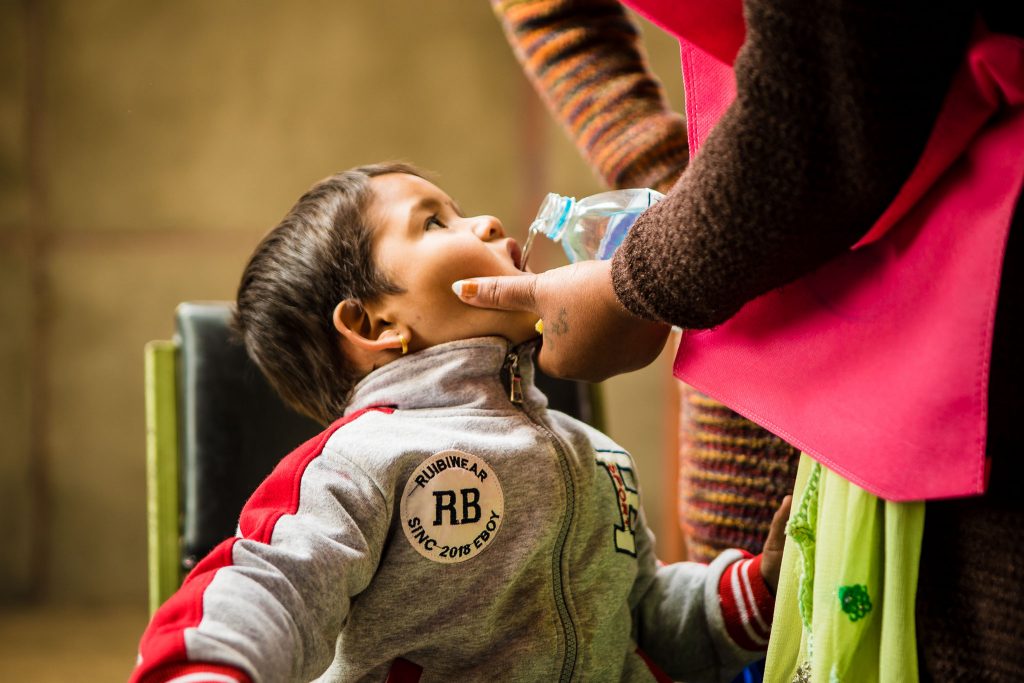
De-worming the children
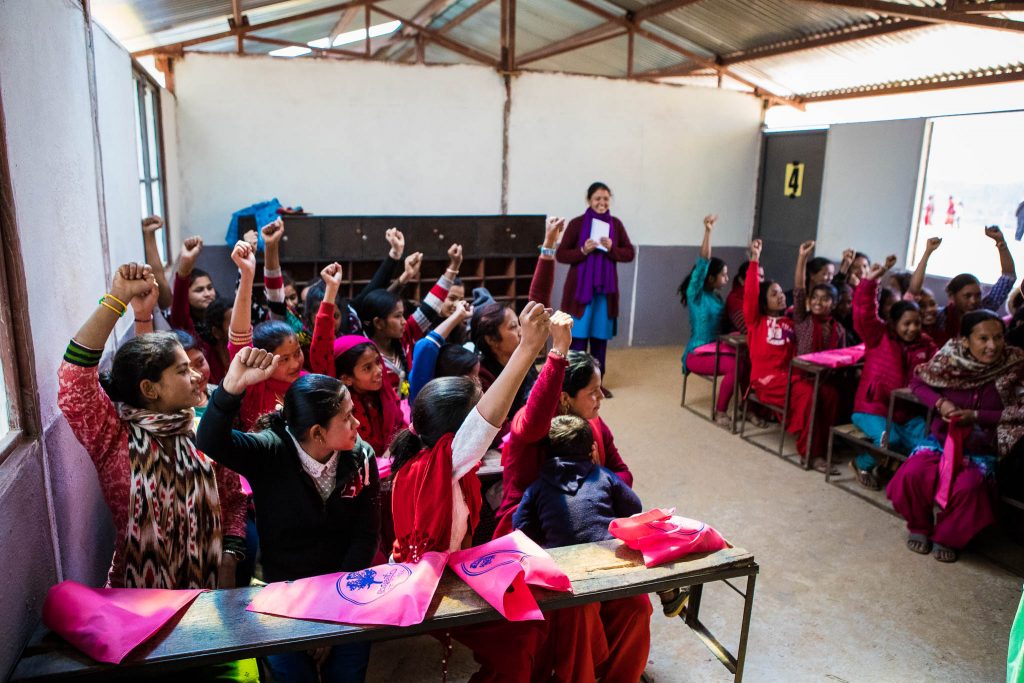
Health and hygiene class
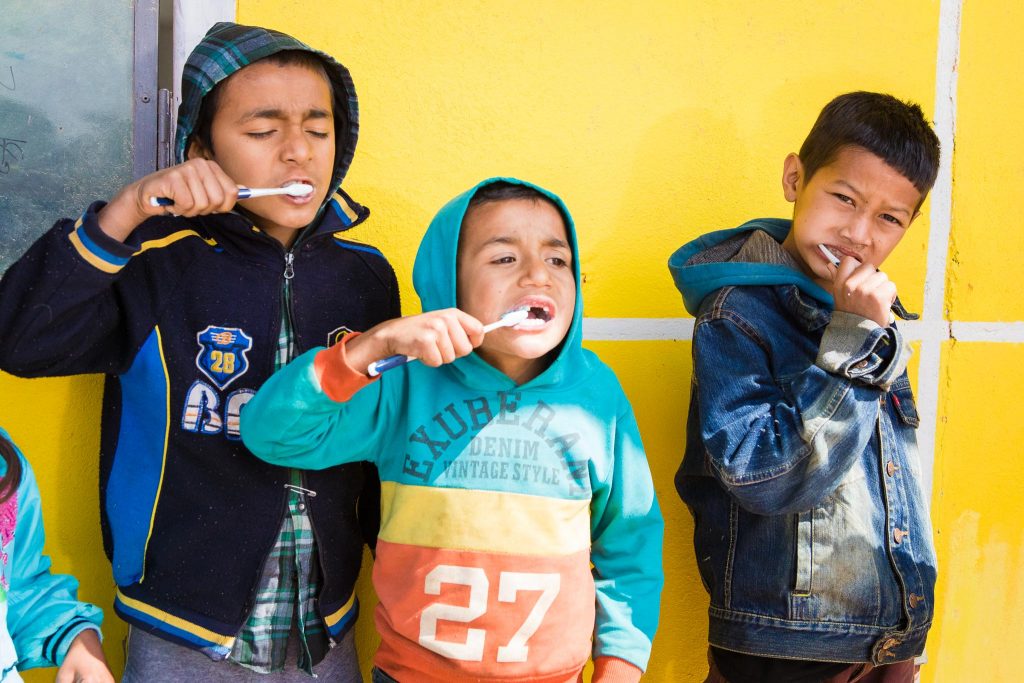
Children learning to brush their teeth
“Realizing just how appreciative the community was to be treated by all the medical personnel made the long, arduous journey to get the camp provisions ‘up the mountain’ all worthwhile,” Chris agreed.
With a successful health camp under their belts, the group left Chautara for Kathmandu before heading off on a sightseeing trip for the next three days. They visited the beautiful lakeside city of Pokhara, where they were able to experience Holi, the spectacular Hindu festival of colors.
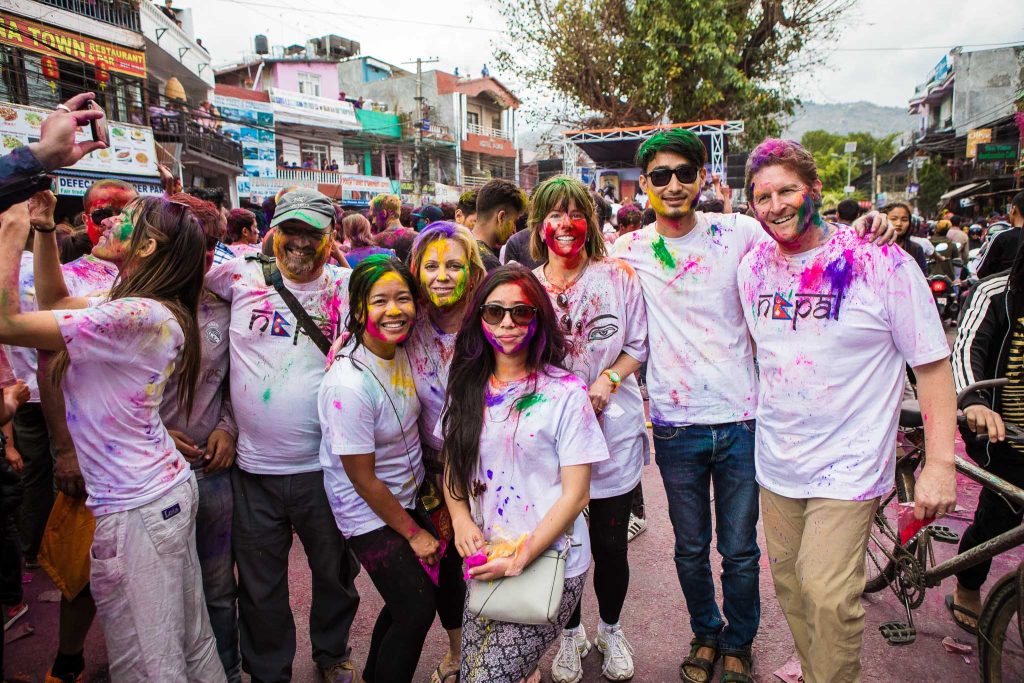
Holi in Pokhara!
The group then headed off for a few days of hiking in the Annapurna range near the trekking mecca of Ghandruk and experiencing the stunning landscape of Nepal.
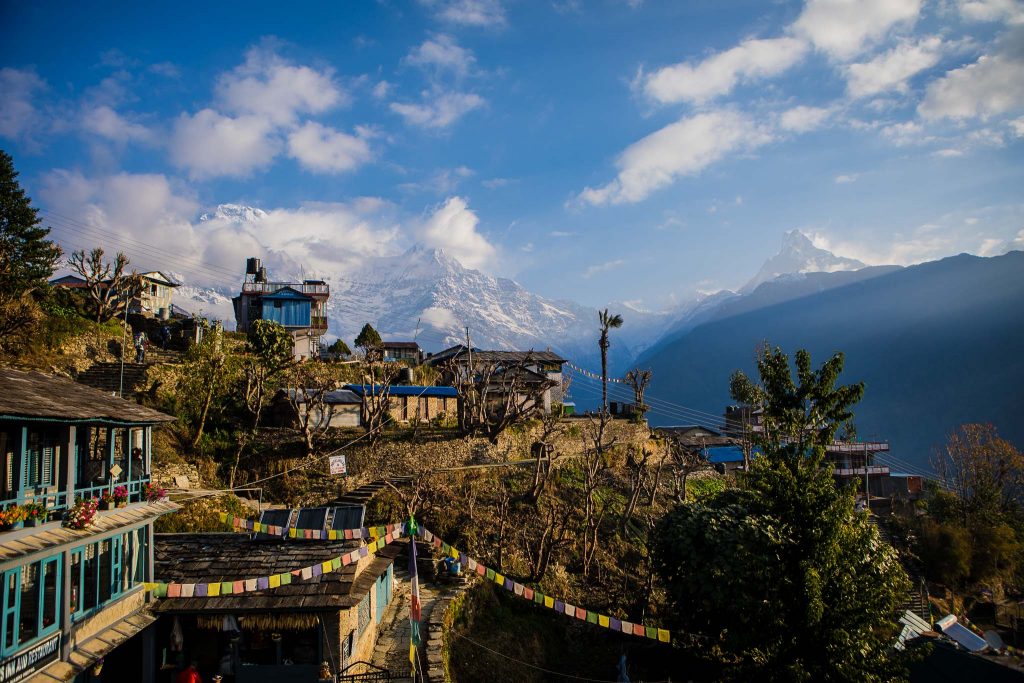
Ghandruk Village
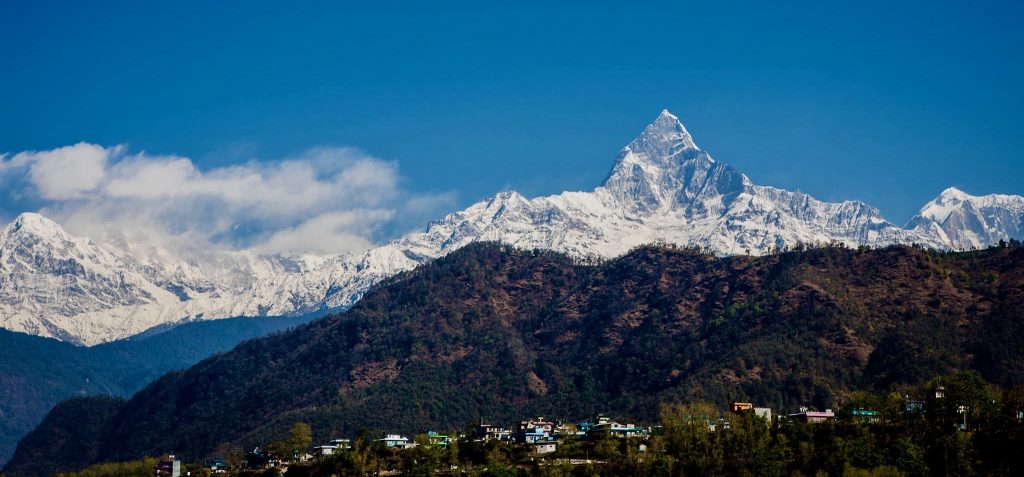
Fishtail Mountain from Pokhara
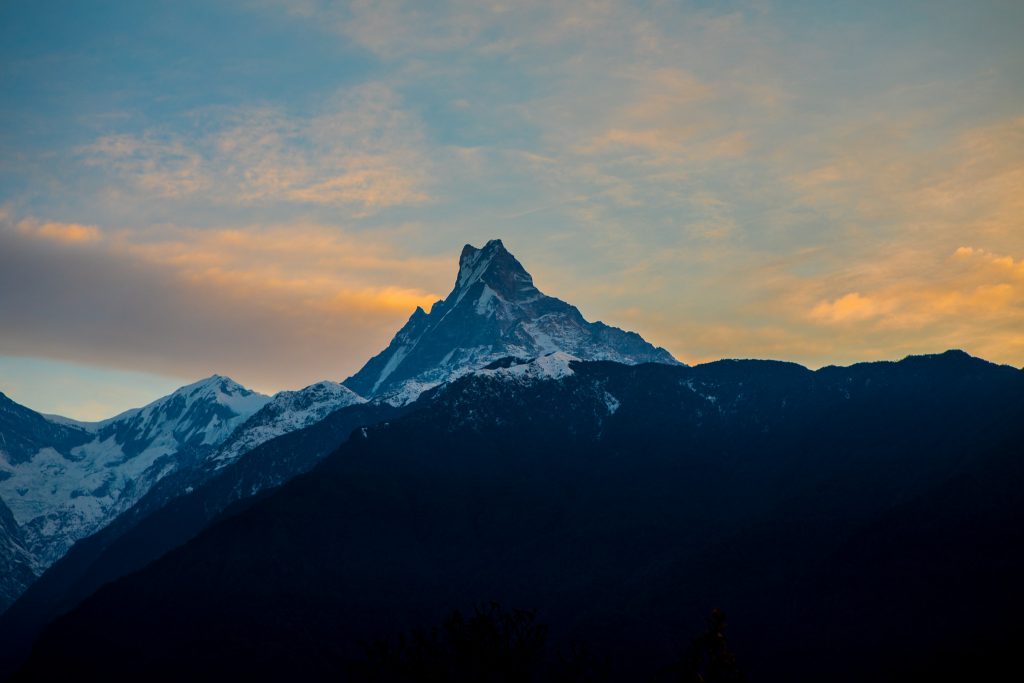
Sunrise over the Himalaya mountains
Unfortunately, their trip to Rupakot, the original PFAV village and home of the Computer Learning Lab, had to be cancelled because of a death in the village. Due to the Nepali custom, the villagers were not allowed to celebrate the large party they had planned for the volunteers. Furthermore, more protests had created a traffic jam so intense that the group could not get far from Pokhara. They had to wait until Thursday to make the 8-hour drive back to Kathmandu, where most of the group spent their final full day shopping on Friday while Kathy met with the staff at the Days for Girls center in Kathmandu.
In the days and weeks that followed their return, the volunteers shared some of their reflections on what they’d seen, experienced, enjoyed, and struggled with during their time in Nepal. They all described a deep gratitude, a feeling that they had received something precious from the very people they had come to serve.
“The PFAV camp was one of the most rewarding endeavors I have ever been involved with in my life,” Chris reflected. “Working with other likeminded individuals was not only a privilege but also the highlight of my trip to Nepal.”
“[The Nepali people are] amazing. Simply amazing,” Roberta noted. “They are a humble, gracious, and welcoming people.”
“Such is the Nepali spirit,” Rene wrote. “Through the cold and the rain, with or without shoes, hungry and poor, they approach life with a smile. A smile that can bring sunshine to a rainy day. A smile that means ‘thank you’ in any language. A smile that can open gray curtains. A smile that makes me want to go back to see my Nepali friends.”
For more information on PFAV’s mission and ongoing projects in Nepal, please click here.
- Jeff Lovin, the camp photographer
- Thamel, in Kathmandu
- Roberta & Chris in Kathmandu
- Single Women’s Micro-enterprise
- Making the Days for Girls menstrual hygiene kits in Dhading Besi
- The Micro-enterprise group
- The night before the health camp
- Rene & Kathy with the water tank
- Granny bringing a baby to the camp
- Chris at registration
- The line for the camp
- Health & hygiene class
- De-worming the children
- Waiting patiently
- Health & hygiene class
- Health & hygiene class
- Walking down the mountain to come to the camp
- Learning to brush their teeth
- The morning of day 2
- Waiting…
- Going home with vitamins, medicine and soap!
- Everyone receives vitamins
- Dr. Angela examining a young girl
- The line of patients well into the afternoon
- Pam Dobson, AKA “PFAV de-wormer and vitamin girl,” and Dela Joshi at work.
- Our group of volunteers and doctors
- Holi in Pokhara!
- Fishtail Mountain
- Ghandruk Village
- Sunrise over the Himalaya mountains
- Riza and Keshan, the pharmacist
- Dela and a baby goat
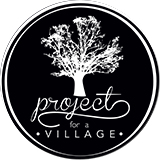
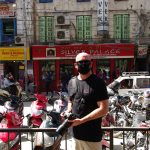
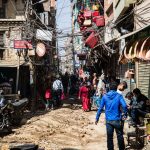
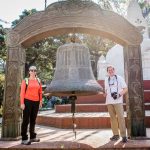
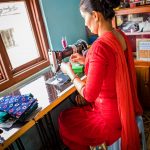
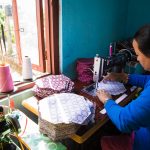
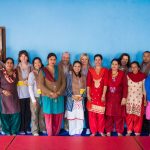
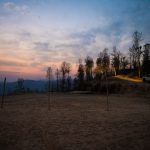
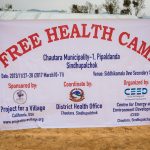
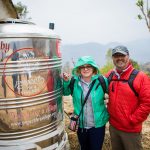
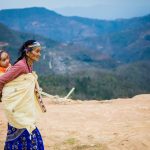
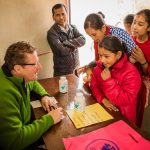
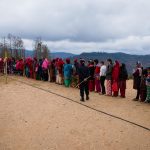
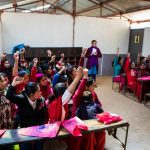
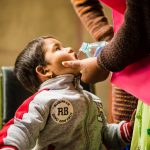
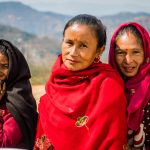
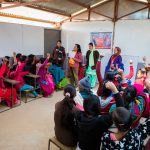
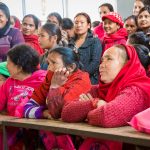
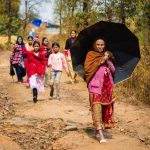
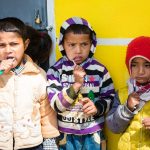
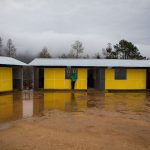
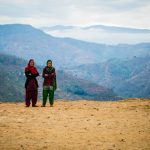
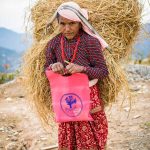
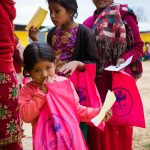
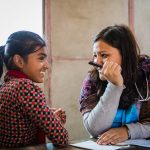
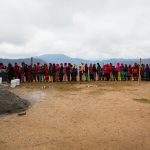
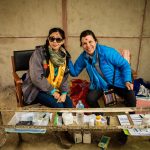
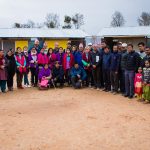
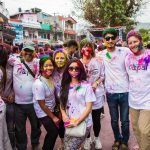
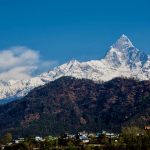
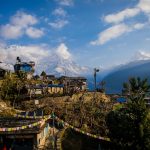
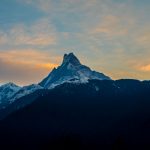
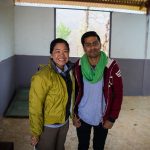
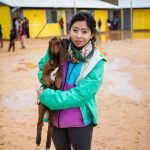
Very interesting read. Thank you for sharing
Very inspiring. We don’t realize how fortunate we are. Thank you for sharing.
Atlast I have read of your humbling and rewarding trip. It, s funny ,I had just started reading your story when I smelled a material smell, as if I smelled fabric!!??? I envy your lifestyle,spirituality,and the love you show to the world. And, Birdie,as you once said to me—everything is relative.
Jim and I send our LOVE to you both.